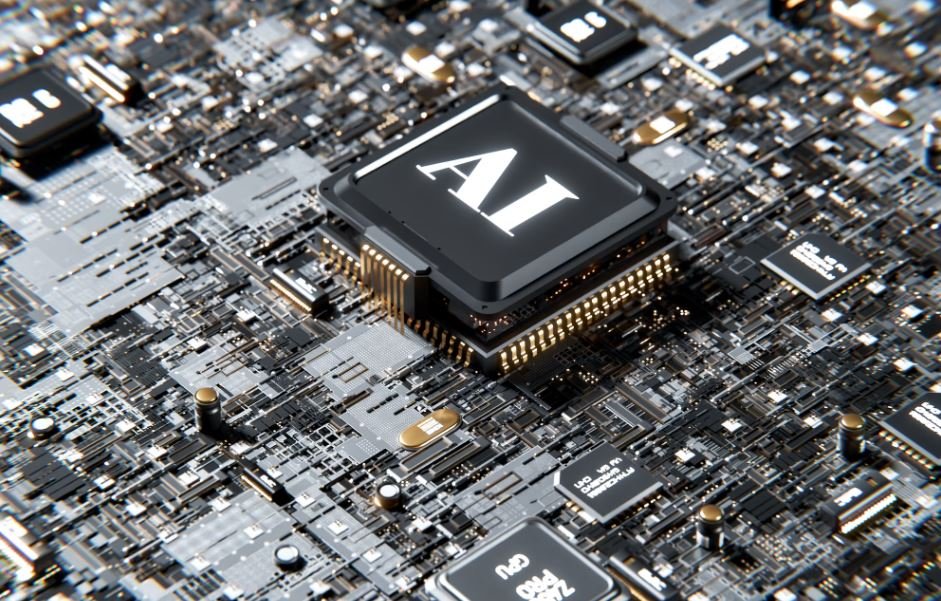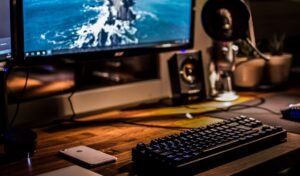Generative Music in Ableton Live
Generative music is a unique approach to music production that focuses on creating music through algorithms and automated systems. With the help of Ableton Live, a popular digital audio workstation (DAW) software, musicians and producers can explore this innovative technique to generate music that evolves and unfolds in real-time. In this article, we will delve into the world of generative music and how to harness its power in Ableton Live.
Key Takeaways
- Generative music in Ableton Live allows for the creation of music through algorithms and automation.
- Ableton Live provides a range of tools and features to aid in the production of generative music.
- Generative music can produce unique and evolving compositions.
- Experimentation and exploration are key components of generative music in Ableton Live.
Generative music is driven by algorithms and automation, resulting in compositions that are not fixed but rather constantly changing and evolving. This approach to music production opens up endless possibilities for musicians to experiment and create unique sounds. *By letting go of traditional song structures and fixed arrangements, generative music allows for a more fluid and unpredictable creative process.* Using Ableton Live, artists can take advantage of its various tools and features designed specifically for generative music production.
One of the most powerful features of Ableton Live is its extensive MIDI capabilities. MIDI (Musical Instrument Digital Interface) allows for the communication between software and hardware, enabling the control and manipulation of musical data. In generative music, MIDI is often used to trigger and modulate different elements of a composition, such as melodies, harmonies, and rhythms, to create evolving musical patterns and textures. *The versatility of MIDI in Ableton Live provides endless possibilities for the creation of generative music.*
Tables
| Table 1: Generative Music Tools in Ableton Live | ||
|---|---|---|
| Drum Racks | Sampler | Max for Live Devices |
| MIDI Effects | Randomizers | Generative Sequencers |
In addition to MIDI capabilities, Ableton Live offers a wide range of tools and devices specifically designed for generative music. These tools include Drum Racks, which allow for the creation of complex drum patterns with randomization and modulation capabilities, and the Sampler, a versatile sampling instrument that can be used to create unique sounds and textures. Furthermore, through Max for Live, a platform that integrates the Max visual programming environment into Ableton Live, users can access a vast library of generative music devices to enhance their compositions.
MIDI effects play a crucial role in generative music production. Ableton Live offers various MIDI effects that allow for creative manipulation of MIDI data. These effects can be used to generate random variations, transform and manipulate musical patterns, and create evolving textures. *The combination of MIDI effects with other generative tools in Ableton Live enables musicians to experiment with different parameters and generate constantly evolving musical ideas.*
Tables
| Table 2: Advantages of Generative Music | |
|---|---|
| Endless creative possibilities | Unique and unpredictable compositions |
| Facilitates experimentation and exploration | Generates evolving musical patterns |
Generative music provides musicians with unique advantages and opportunities for creativity. By embracing this approach, artists can tap into endless possibilities and push the boundaries of traditional music production. *The unpredictability of generative music compositions adds excitement and novelty to the listener’s experience.* Moreover, this technique encourages experimentation and exploration, allowing artists to venture into new sonic landscapes and discover innovative musical ideas.
In conclusion, generative music in Ableton Live is an exciting and transformative approach to music production. By harnessing the power of algorithms, automation, and the versatile MIDI capabilities of Ableton Live, musicians can create unique and ever-evolving compositions. *Through generative music, artists can break free from traditional structures and unlock new realms of creative expression.* So, why not embark on a journey of exploration and experimentation to unlock the endless possibilities of generative music in Ableton Live?

Common Misconceptions
Generative Music in Ableton Live
When it comes to generative music in Ableton Live, there are several common misconceptions that people often have. These misconceptions can hinder their understanding and enjoyment of this creative process. Let’s explore some of these misconceptions:
- Generative music is only random noise without structure.
- Generative music cannot be controlled or manipulated.
- Generative music is only suitable for ambient or experimental genres.
Firstly, one common misconception is that generative music is only random noise without any structure. Many people mistakenly believe that generative music lacks coherence and musicality. However, generative music is designed to create evolving patterns and melodies through algorithmic and rule-based systems. These systems can generate complex and intricate compositions with defined structures, which can surprise and delight the listener.
- Generative music utilizes algorithms and rules to create structured compositions.
- Generative music can be used to produce various musical genres and styles.
- Generative music can be enriched by combining it with traditional compositional techniques.
Secondly, another misconception is that generative music cannot be controlled or manipulated. People often believe that once the generative processes are set in motion, they have no control over the outcome and cannot make adjustments or modifications. However, generative music in Ableton Live provides a wide range of parameters and controls that allow artists to shape and mold the generated sounds and patterns. This flexibility enables musicians to have an active role in the creation and evolution of the music.
- Generative music in Ableton Live offers numerous parameters for control and manipulation.
- Artists can adjust and modify the generative processes to their liking.
- Generative music can be performed live and improvised upon in real-time.
Lastly, there is a misconception that generative music is only suitable for ambient or experimental genres. While it is true that generative music is often used in these genres due to its ability to create immersive and unique sonic environments, it is not limited to them. Generative music can be applied to a wide range of musical genres and styles, including pop, rock, and even dance music. It offers endless possibilities for creativity and can spark new ideas and innovative compositions in any genre.
- Generative music can be integrated seamlessly into various musical genres.
- It can add a fresh and unique element to traditional musical styles.
- Generative music can inspire new creative directions in songwriting and production.

Overview of Generative Music
Generative music is a concept in music composition where music is created through a set of rules and algorithms, allowing for endless variations and possibilities. In this article, we explore the world of generative music production using the popular digital audio workstation, Ableton Live, as a creative tool. Each table provides insightful information and examples to showcase the fascinating aspects of generative music.
Evolution of Music Generation
Music generation has come a long way throughout history. This table highlights key advancements in the field:
| Year | Milestone |
|——|———————————————|
| 1957 | First computer-generated music |
| 1977 | Yamaha DX7 introduces frequency modulation |
| 1982 | Roland TB-303 pioneers acid basslines |
| 1997 | Granular synthesis gains recognition |
| 2004 | Markov chain algorithms in music composition |
| 2019 | Artificial intelligence in music creation |
Popular Generative Music Techniques
Generative music encompasses various techniques. The following table explores some widely used approaches:
| Technique | Description |
|—————–|———————————————————————|
| Algorithmic | Using mathematical models and algorithms to generate musical patterns |
| Probabilistic | Utilizing probability theory to determine musical outcomes |
| Sample Manipulation | Modifying existing samples to create unique sounds |
| Cellular Automata | Applying rule-based systems to generate continuous musical sequences |
Applications of Generative Music
Generative music finds its place in a myriad of applications. Here are a few notable examples:
| Application | Use Case |
|——————-|——————————————–|
| Soundtracks | Enhancing film, TV, and game soundtracks |
| Ambient Background| Creating atmospheric background music |
| Interactive Art | Offering dynamic soundscapes for installations |
| Meditation | Producing calming and relaxing melodies |
Artists Who Explore Generative Music
A variety of talented artists delve into the realm of generative music. Here are some notable names:
| Artist | Genre |
|——————–|———————–|
| Brian Eno | Ambient |
| Autechre | IDM |
| Steve Reich | Contemporary Classical|
| Holly Herndon | Experimental |
| Tim Hecker | Drone |
Essential Tools for Generative Music
Several software and hardware tools are essential for creating generative music. This table presents some widely used tools:
| Tool | Purpose |
|—————|————————————————|
| Ableton Live | Digital audio workstation for music production |
| Max for Live | Programming environment for interactive music |
| Pure Data | Visual programming language for audio synthesis|
| Mutable Instruments | Eurorack modular synthesizers |
Notable Plugins for Generative Music
Various plugins enhance the generative music production process. Here are some noteworthy examples:
| Plugin | Purpose |
|—————|————————————————|
| Portal | Granular synthesis and time-stretching effects |
| Reaktor | Modular synthesis platform by Native Instruments|
| Serum | Advanced wavetable synthesizer |
| The Mangle | Creative sound mangling and manipulation |
Sources of Inspiration for Generative Music
Generative music draws inspiration from diverse sources. This table explores some common influences:
| Inspiration | Description |
|——————-|——————————————–|
| Nature | Sounds found in the natural world |
| Mathematics | Mathematical principles and algorithms |
| Visual Art | Translating visual elements into music |
| Artificial Intelligence | Machine learning and AI techniques |
Collaborations in Generative Music
Collaboration adds another dimension to generative music production. Here are examples of remarkable collaborations:
| Collaboration | Artists |
|———————-|—————————–|
| Alva Noto & Ryuchi Sakamoto | RYUICHI SAKAMOTO + ALVA NOTO |
| Brian Eno & David Bowie | Brian Eno + David Bowie |
| Aphex Twin & Mike Paradinas | Aphex Twin + Mike Paradinas |
Generative Music in Live Performances
Generative music can be an exhilarating experience in live performances. Here are some notable examples:
| Artist | Performance Event |
|———————-|————————————————–|
| Ryoji Ikeda | Supercodex Live AV performance |
| Kaitlyn Aurelia Smith| Eurorack modular synth performances |
| Four Tet | Live improvisation using generative music patches |
Generative music, with its limitless possibilities and endless variations, opens up new avenues for music creation. Through the exploration of various techniques, applications, artists, and tools, musicians are able to tap into the vast potential of generative music. Whether used for ambient backgrounds, soundtracks, or interactive art installations, this exciting field continues to push the boundaries of musical creativity.
Generative Music Ableton Live
FAQs
- What is generative music?
- Generative music refers to music that is created by a system or process using predefined rules or algorithms, rather than composed by a human in a traditional manner.
- How can I make generative music in Ableton Live?
- To make generative music in Ableton Live, you can use various techniques such as MIDI effects, Max for Live devices, and automation to create randomized and evolving musical patterns.
- What are MIDI effects in Ableton Live?
- MIDI effects in Ableton Live are devices that can be placed on MIDI tracks to transform or generate MIDI data. These effects can be used to create generative music by introducing variations and randomization to the MIDI input.
- What is Max for Live?
- Max for Live is an extension for Ableton Live that allows users to create custom devices and instruments using the Max/MSP programming environment. With Max for Live, you can build your own generative music tools and devices.
- How can automation be used for generative music?
- Automation in Ableton Live can be used to modulate various parameters of your music in real-time. By automating parameters like pitch, velocity, or effects, you can add movement and variability to your generative music compositions.
- Are there any recommended Ableton Live devices for generative music?
- Yes, there are several Ableton Live devices that are widely used for generative music. Some popular choices include MIDI effects like “Random” and “Arpeggiator,” as well as Max for Live devices such as “Drunk” and “Probability Pack.”
- Can I combine generative music techniques with traditional composition methods?
- Absolutely! Generative music techniques can be used to spark inspiration and create unique musical elements, which can then be combined with traditional composition methods to build cohesive musical arrangements.
- Is it possible to export generative music from Ableton Live to audio files?
- Yes, Ableton Live allows you to export your generative music compositions as audio files. You can export your tracks individually or mix them down into a single audio file for further processing or sharing.
- Can I perform generative music live using Ableton Live?
- Absolutely! Ableton Live provides a flexible and powerful platform for live performances. With the right setup and control surface, you can manipulate and evolve your generative music in real-time during a live performance.
- Are there any resources or communities for learning more about generative music in Ableton Live?
- Yes, there are many online resources and communities dedicated to generative music production in Ableton Live. You can find tutorials, forums, and communities where producers share their techniques, tips, and experiences with generative music.




